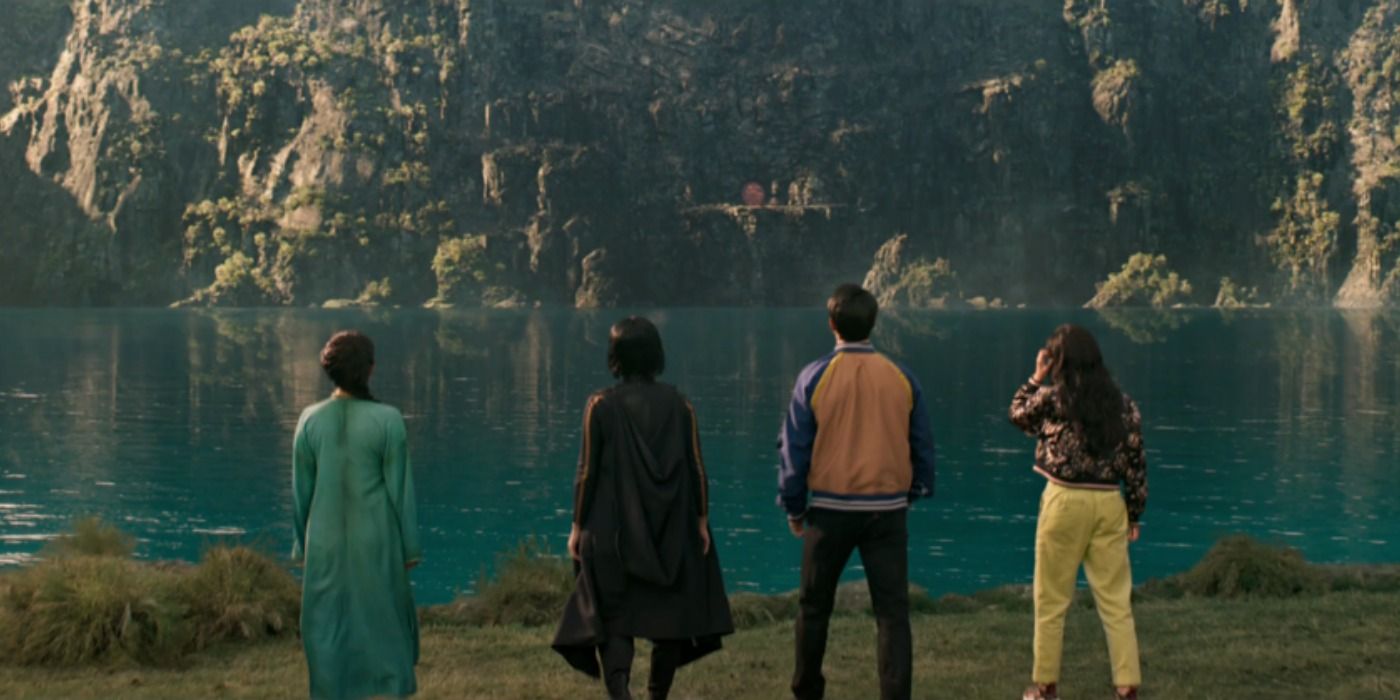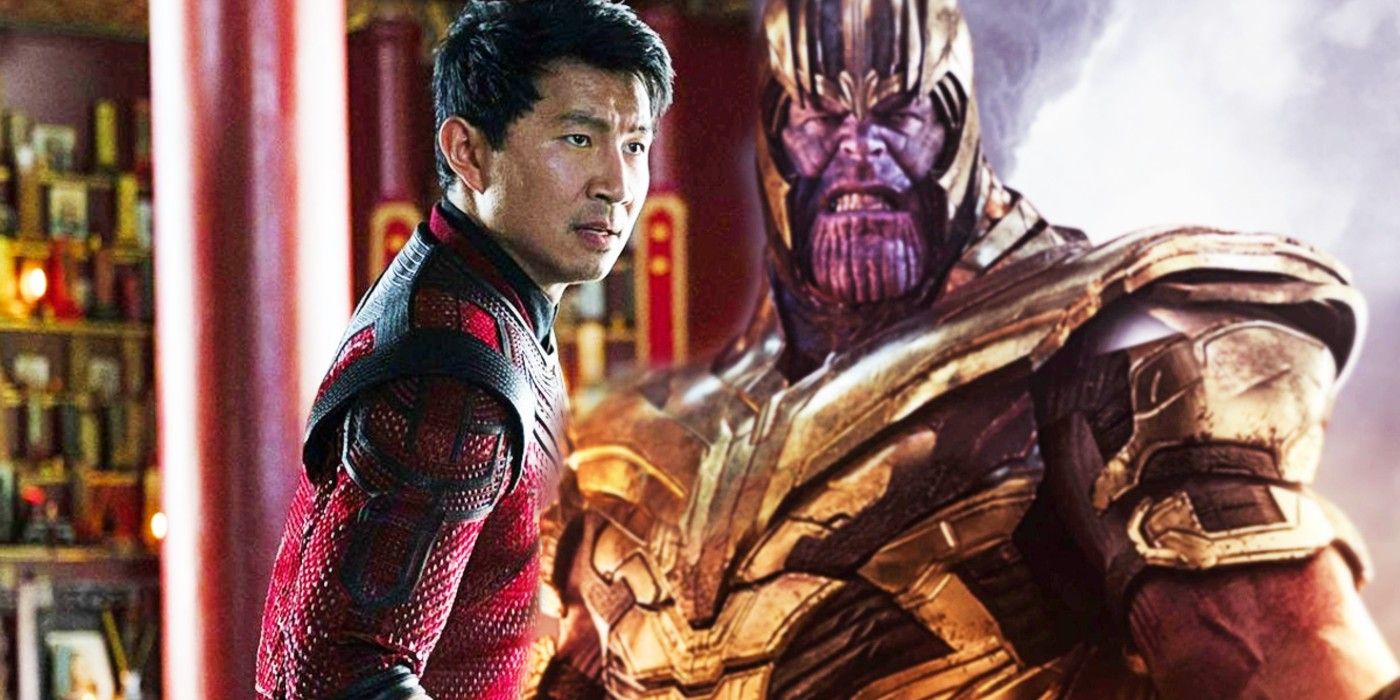Warning: This article contains SPOILERS for Shang-Chi and the Legend of the Ten Rings.
Here's how Shang-Chi & the Legend of the Ten Rings fits into the MCU's post-Avengers: Endgame timeline. Avengers: Endgame changed the Marvel Cinematic Universe forever. A five-year time jump meant the entire universe had dealt with a horrific trauma, with half the living creatures in all creation erased with a snap of Thanos' finger. The Avengers successfully put matters right, restoring everyone who had been turned to dust by the Mad Titan, but they couldn't deal with the experience.
This means the MCU can neatly be divided into two periods; you have the Infinity Saga, which culminates in Thanos' mad act of genocide and the Avengers' attempt to put matters right, and you have everything that comes after it. Marvel's Disney+ TV shows have really focused on exploring the immediate repercussions of Avengers: Endgame, with WandaVision focusing on Wanda Maximoff's grief after Vision's death while The Falcon & the Winter Soldier explored the geopolitical consequences. The films themselves seem to have distanced themselves from what Marvel call "the Blip" somewhat, with the world mostly returning to normal for Shang-Chi & the Legend of the Ten Rings and Spider-Man: Far From Home. But how exactly does Shang-Chi, the latest Marvel movie, fit into the post-Endgame viewing order?
Related: Shang-Chi Confirms The MCU Timeline Is Completely Broken Post-Endgame
The key to placing Shang-Chi in the viewing order lies in Wenwu's claim the gate to Ta Lo opens only on Qingming Jie, a Chinese festival that occurs on the 15th day after the Spring Equinox. Given Avengers: Endgame ended in October 2023, that means it must be on Qingming Jie 2024 - April 4. And, because other MCU films and Disney+ TV shows can be precisely dated due to their relationship with Avengers: Endgame, the viewing order for current MCU content would look like this:
- Avengers: Endgame
- Loki
- Marvel's What If...?
- WandaVision
- Shang-Chi & the Legend of the Ten Rings
- The Falcon & the Winter Soldier
- Spider-Man: Far From Home

As recommended by Marvel and Disney on Disney+, it's best to watch Loki immediately after Avengers: Endgame, simply because that show spins right out of the Avengers' time travel mission - which unwittingly created a branched timeline where Loki escaped the Battle of New York in 2012 with the Tesseract. Loki's actions create the new MCU Multiverse, which Marvel's What If...? currently explores. Once these Multiversal adventures have been enjoyed, viewers return to the normal timeline for WandaVision - which features the character of Monica Rambeau returning to work at S.W.O.R.D. just three weeks after she'd been restored to life when the Hulk snapped his fingers in Avengers: Endgame. The Falcon & the Winter Soldier is set six months after Avengers: Endgame, in late April 2024 - which means Shang-Chi comes first.
This is more than a little curious, though. The world of Shang-Chi is definitely post-Blip - Katy makes a throwaway mention to it, and a poster outside her home offers counseling for people struggling to acclimatize to life after the Blip - but it seems mostly restored. Shang-Chi is able to travel from San Francisco to Macau without any inconvenience at all, while Falcon & Winter Soldier reveals national borders were still being set up - which would really be expected to affect air travel. The reason for this inconsistency likely lies in Marvel's view of the different audiences; the Disney+ shows are more granular, and viewers who watch them are more likely to be invested in the overarching MCU narrative, whereas the latest blockbuster origin story needs to stand on its own feet a little more in order to succeed in the box office. The approach is making things feel a little inconsistent in the MCU as a whole, though.
More: Shang-Chi 2 News & Updates: Everything We Know
Key Release Dates
-

Eternals
Release Date:2021-11-05 -

Doctor Strange In the Multiverse of Madness
Release Date:2022-05-06 -

Thor: Love and Thunder
Release Date:2022-07-08 -

Black Panther: Wakanda Forever
Release Date:2022-11-11 -
captain marvel 2
Release Date:2023-07-28 -

Ant-Man and the Wasp: Quantumania
Release Date:2023-02-17 -

Guardians of the Galaxy Vol. 3
Release Date:2023-05-05 -

Eternals
Release Date:2021-11-05 -

Doctor Strange In the Multiverse of Madness
Release Date:2022-05-06 -

Thor: Love and Thunder
Release Date:2022-07-08 -

Black Panther: Wakanda Forever
Release Date:2022-11-11 -
captain marvel 2
Release Date:2023-07-28 -

Ant-Man and the Wasp: Quantumania
Release Date:2023-02-17 -

Guardians of the Galaxy Vol. 3
Release Date:2023-05-05

